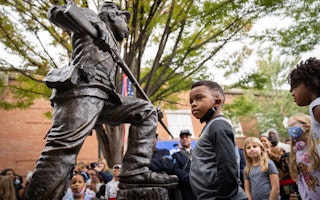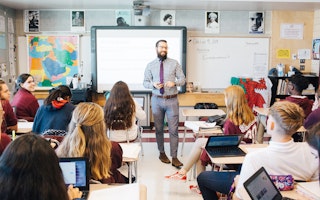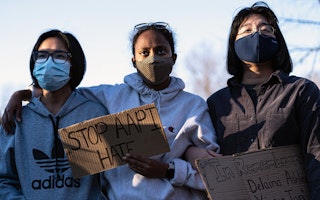NEW YORK—The Open Society Foundations are pleased to announce the recipients of the Soros Equality Fellowship, a new initiative to help emerging mid-career professionals become long-term innovative leaders in the field of racial justice.
The seven fellows, chosen from over 1,000 applicants representing a diverse array of professions—from the arts and advocacy to journalism and documentary filmmaking—will work on a wide variety of ways to advance racial justice: documenting the oral histories of queer and trans people of color; tackling structural racism in the food supply; chronicling how slavery helped build a major modern institution of higher learning; and creating an ad campaign to take on distortions in America’s contemporary racial narrative.
The program is intended to help incubate innovators and risk-takers striving to create and develop new ways of addressing the challenges of racial disparity and discrimination in the United States. Beyond nurturing their specific projects, the program seeks to promote leadership development training, networking and other professional support aimed at building a pipeline connecting the energy and ideas of youth with the wisdom and influence of experience.
“We are living in a time of enormous challenge, when forces peddling fear and hate are pushing ever harder to normalize xenophobia and racism,” said Leslie Gross-Davis, director of the Equality team within U.S. Programs at the Open Society Foundations, who launched the initiative. “While the magnitude of the challenge is daunting, the inaugural class of Soros Equality Fellows gives me hope for the future. Their energy, creativity, and determination to tackle even the longest odds are an inspiration. The Open Society Foundations is honored to have the opportunity to support this amazing cohort of next-generation racial justice leaders.”
The 2017 Soros Equality Fellows will receive stipends ranging from $80,000 to $100,000 to support projects over the course of 12 to 18 months.
2017 Soros Equality Fellows
Alice Hom will create a digital archive of oral histories of queer and trans people of color, designed to promote and share cross-generational stories of resistance and community organizing.
Deepa Iyer will create a platform to provide racial justice organizations with resources to sharpen organizing and coalition building strategies, and promote solidarity across communities.
Leah Penniman will train farm activists of color in strategies for addressing structural advocacy in the food system, with a particular focus on farmworker rights.
Purvi Shah will create a hub to promote collaboration, coalition-building and experimentation among lawyers working on racial justice issues.
David Felix Sutcliffe will produce a documentary musical examining the mainstream media’s role in spreading Islamophobia, and a series of short videos exploring the role of discrimination in current events.
Rachel Swarns will write a book exploring the role slavery played in the history of Georgetown University, and the impact of that chapter on the lives and descendants of the enslaved.
Hank Willis Thomas will use the tools of a contemporary advertising agency to create a campaign aimed at exploring and discrediting distortions in the racial narrative in the United States.
Read more
Power and Public Memory
Q&A: Why Monuments Must Change

We tend to think of monuments as being immutable, permanent structures. But the nonprofit group Monument Lab is on a mission to change the way the U.S. thinks about monuments and their relationship with power and public memory.
Confronting History
The Manufactured Moral Panic Over Critical Race Theory

Authoritarians use racial grievance to gain power, and liberal discomfort enables their efforts. What Critical Race Theory really means—and how the attack on it undermines democracy.
Solidarity against Hatred
A History of Anti-Asian Hate in the United States

The Atlanta-area shooting was just the latest instance of rising violence against people of Asian descent. We need to understand its roots—and the intersecting factors at work—to stop hate’s spread.